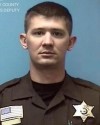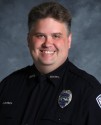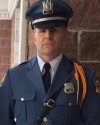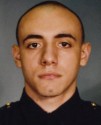Now there is a movement by Handgun Control Inc, The Brady Foundation and other groups to pressure businesses to not allow people with a CCP into their location. Besides the legal question of can a house rule supersede state law, the "Gun Free Zone" movement means the only armed people in the location are going to be bad guys. But we see the results here in the active shooter in the theater in Aurora CO.
I don't question the man who is responsible for killing 12 and injuring 70 is the coward who shot them, James Holmes. However, if one CCP holder was present and could have taken him out, Holmes could have been stopped. And likely this would never have been a national event because the media generally doesn't televise use of guns to stop potential active shooters.
Now Cinemark is about to pay for the foolishness of letting their theaters be an open target area, aka "Gun Free Zone".
Federal judge rules Aurora theater shooting was foreseeable
The owner of the Aurora movie theater that was the site of a deadly 2012 attack could have reasonably enough foreseen the danger of such an attack to be held liable for it, a federal judge ruled Friday.
Noting "the grim history of mass shootings and mass killings that have occurred in more recent times," U.S. District Court Judge R. Brooke Jackson ruled that Cinemark — owner of the Century Aurora 16 theater — could have predicted that movie patrons might be targeted for an attack. Jackson's ruling allows 20 lawsuits filed by survivors of the attack or relatives of those killed to proceed toward trial.
"Although theaters had theretofore been spared a mass shooting incident, the patrons of a movie theater are, perhaps even more than students in a school or shoppers in a mall, 'sitting ducks,' " Jackson wrote.
Jackson's ruling does not decide the lawsuits' ultimate question: Did Cinemark do enough to try to prevent the shooting? The lawsuits argue Cinemark should have had extra security measures in place to discourage the attack and to stop it more quickly once it began.
Instead, Jackson's ruling denies what is known as a "motion for summary judgment" filed by Cinemark. Similar to a previously denied motion, the theater chain had argued that the lawsuits should be dismissed because the attack was "legally unforeseeable."
The trial is set for February.
On October 16, 1991 we had an Active Shooter situation in Killeen TX where George Hennard drove his truck through the window, got out and murdered 24 people. One was a man I knew and highly respected, LTC Steve Dody. Later that year a survivor of the shooting, Susan Gratia-Hupp, testified on how she left her pistol in her truck and if she had not she could have taken Hennard out.
One point brought out in an article from POLICEONE.COM that active shooters are generally cowards:
...Unlike conventional criminal predators, who often have no reluctance about attacking police, active shooters tend to be “cowardly,” Borsch says.
“They choose unarmed, defenseless innocents for a reason: They have no wish to encounter someone who can hurt them. They are personally risk- and pain-avoidant. The tracking history of these murderers has proved them to be unlikely to be aggressive with police. If pressed, they are more likely to kill themselves.” In his research, he has found no evidence of any LEO in the U.S. yet being wounded or killed in an active-shooting incident where mass murder was intended or accomplished....
James Craig, Chief of Police for Detroit Michigan, recently said people need to arm themselves because the cops can't protect them. I have to agree with the saying "When seconds count, the police are only minute away." Chief, you are dead on right sir.
Cinemark, you made a foolish decision to bend to the special interest groups who don't want to disarm criminals but to only disarm the American people. You will now pay dearly for it in treasure. Your customers from July 20, 2012 have already paid in blood.
















